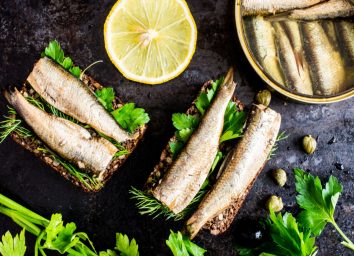5 Surprising Side Effects of Eating Rice Cakes, Say Dietitians
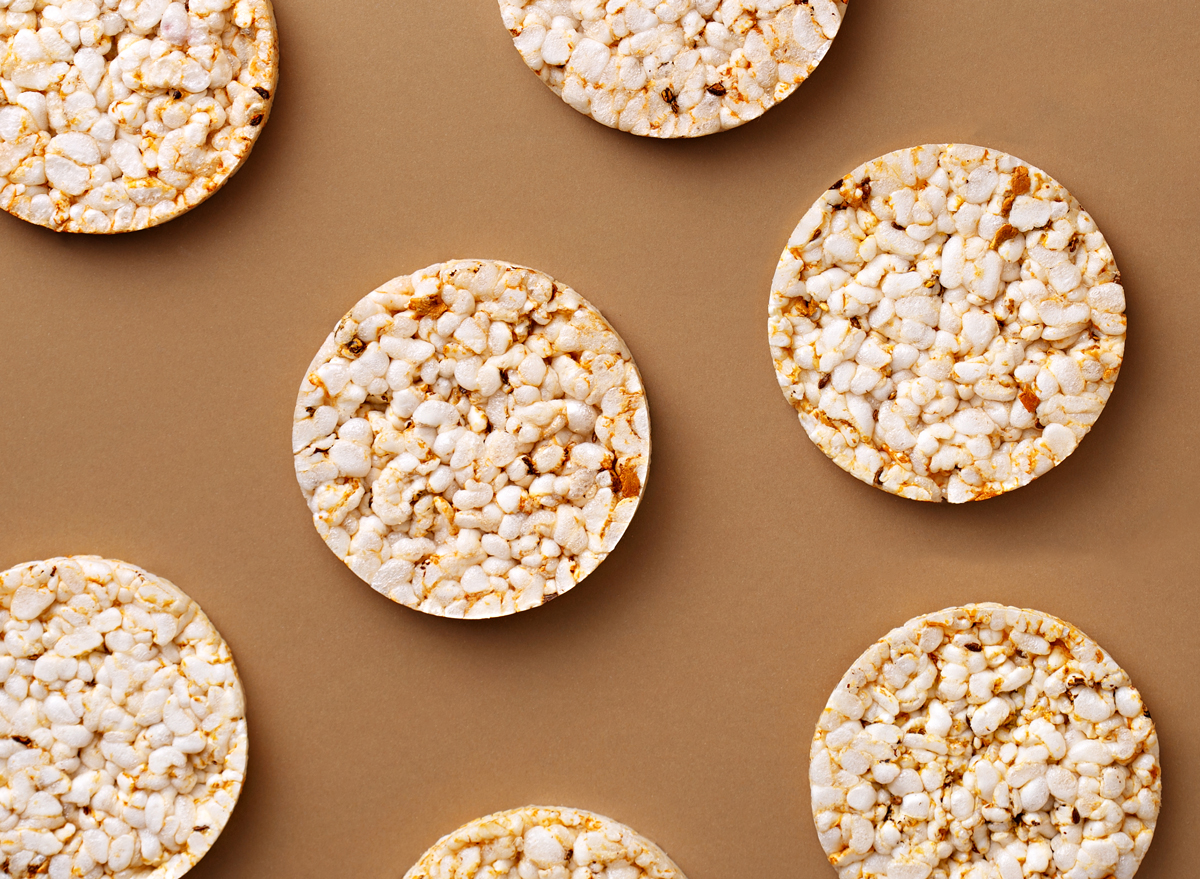
From plain, to flavored, to dressed up with a topping or two, rice cakes are a very popular snack, especially for those who are looking to better their eating habits. Those looking for an alternative to bread, chips, or crackers tend to turn to rice cakes, which are fairly low in calories and low in sodium. This gives anyone in need of a crunchy snack the substitute they've been looking for.
However, although rice cakes seem to usually get a good rap with healthy eating, are they really good for you? We spoke with The Nutrition Twins, Lyssie Lakatos, RDN, CDN, CFT, and Tammy Lakatos Shames, RDN, CDN, CFT, and authors of The Nutrition Twins' Veggie Cure, to find out what the side effects of rice cakes are, from the positives to the downsides. Once you've discovered them, check out What Happens To Your Body When You Drink Pomegranate Juice.
You may spike your blood sugar.
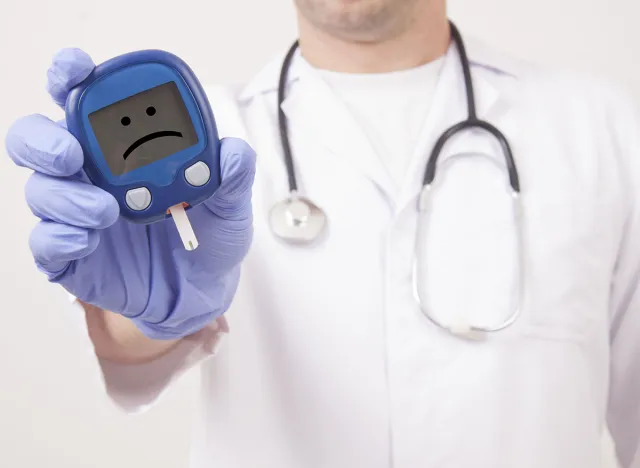
"Even if you choose rice cakes without added sugar, they are mainly made of carbs without much fiber, which means that if you don't add a source of protein or fat to slow their digestion, they can cause your blood sugar to quickly rise," say The Nutrition Twins. "Especially if you have a larger portion."
Moreso, when looking at their glycemic index (GI)—a measure of how quickly blood sugar increases in response to food—The Nutrition Twins say that rice cakes are considered to have a high one with a score of 82 out of 100. That's also before any sugar has been added to the sweetened varieties.
You may become constipated.
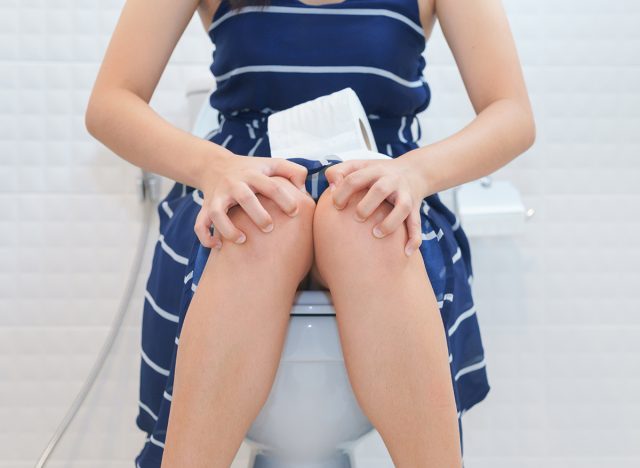
According to The Nutrition Twins, although whole grain brown rice cakes do contain some fiber, refined rice cakes made from white rice lack fiber. Also, if you're opting for these instead of fiber-rich whole grains, and are not consuming plenty of fruits, vegetables, and beans, you may find yourself with a low fiber diet.
Furthermore, The Nutrition Twins state that research from The European Journal of Clinical Nutrition shows that white rice is linked with constipation.
You may lower your cholesterol.
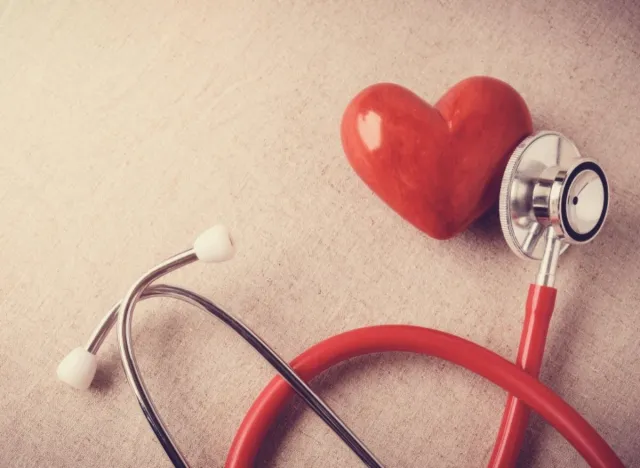
"If you choose whole grain brown rice cakes, you'll be consuming whole grains, which have been proven to lower cholesterol and the risk for heart disease," say The Nutrition Twins.
Research from the Journal of Nutritional Science and Vitaminology (Tokyo) shows that brown rice, specifically, improves bad cholesterol levels and triglycerides while raising the body's beneficial cholesterol. It also is providing a good source of antioxidants.
"The research suggests that eating brown rice may even be a good treatment for high cholesterol," say The Nutrition Twins.
You may lose weight.

According to The Nutrition Twins, swap a whole grain rice cake for a slice of bread or crackers. This will save you calories.
"One rice cake is 35 calories compared to 120 calories in a typical slice of bread or handful of crackers," they say. "If you make a sandwich on rice cakes every day instead of on bread, you'll save 170 calories a day. It may not sound like much, but that could result in a one-and-a-half-pound loss over the course of a month and 17 pounds over the course of a year!"
You may gain weight.
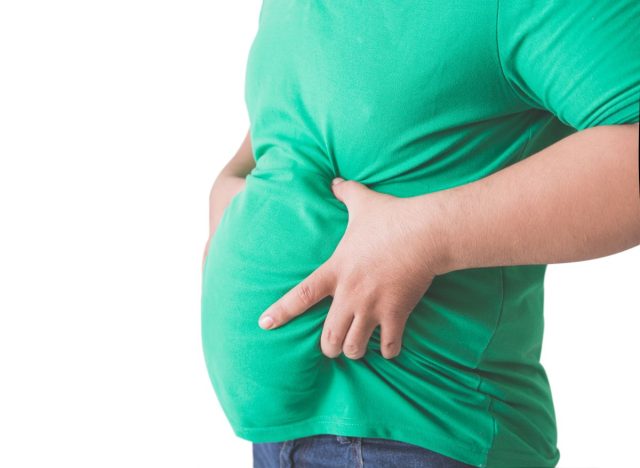
Rice cakes may also give you the opposite effect.
"While rice cakes are often eaten as a 'diet food' and they feel light and airy, they are not calorie-free," explain The Nutrition Twins. "And you may find yourself eating a number of them to feel satisfied—particularly if you're eating them rather than food you truly want, which can cause the calories to add up."
In addition, The Nutrition Twins suggest that rice cakes may provide a quick source of energy. However, without a source of protein or healthy fat, they will leave you feeling hungry soon afterward.
"High GI snacks like rice cakes have been shown to create excessive hunger and increased cravings, raising the likelihood of overeating and gaining weight," say The Nutrition Twins.
So rather than relying on rice cakes when you're looking for something to eat with peanut butter or a dip, consider opting for a high-fiber seeded cracker instead.

